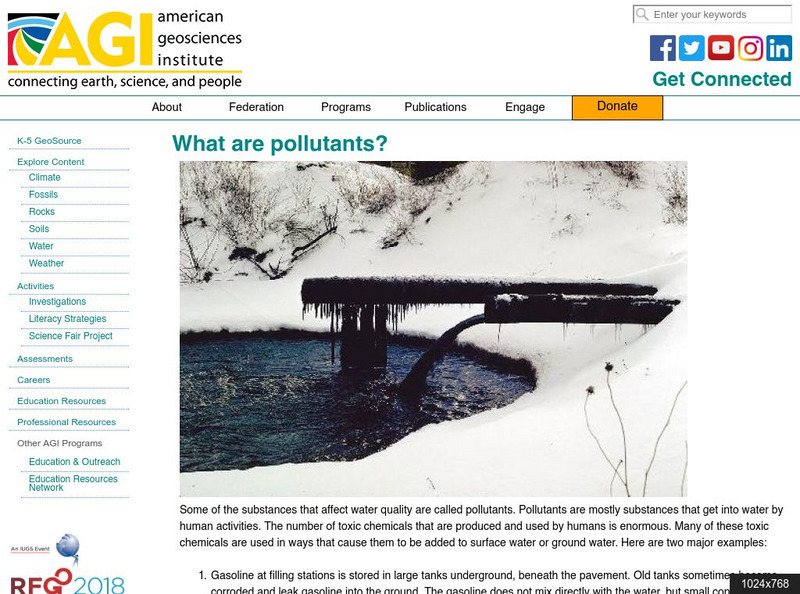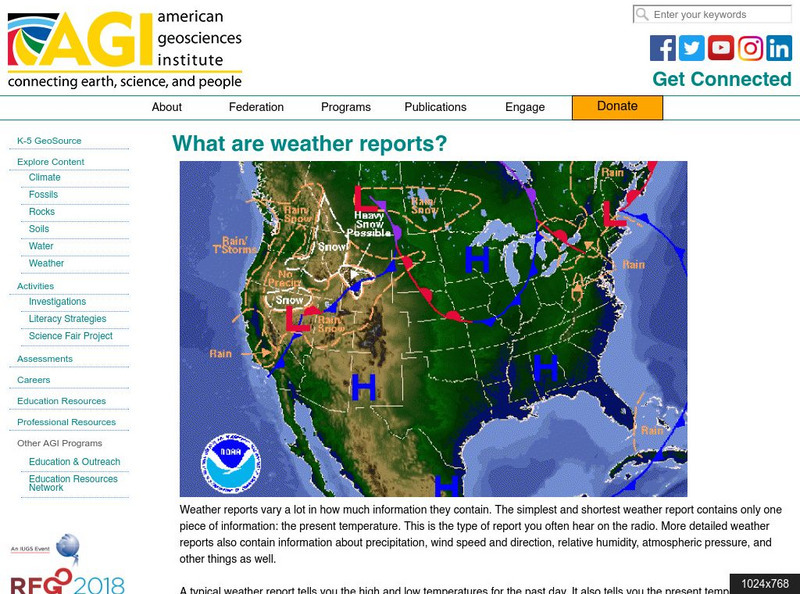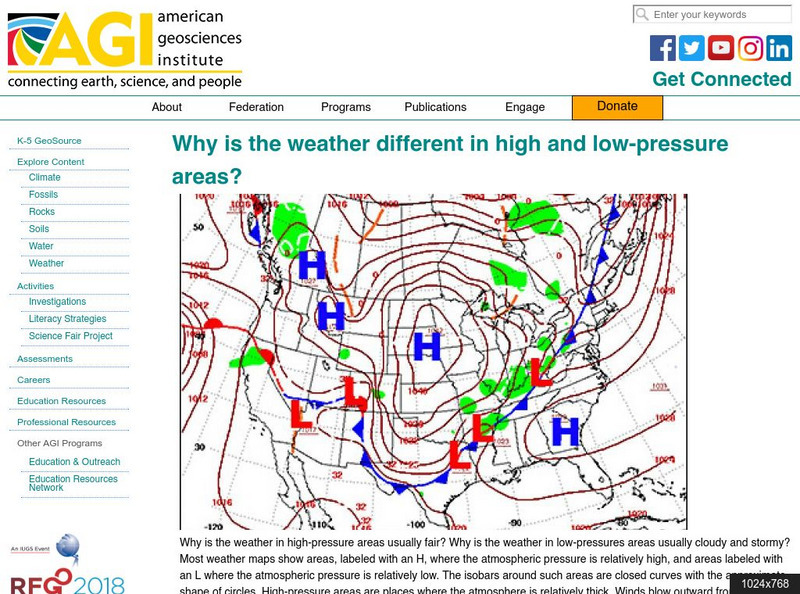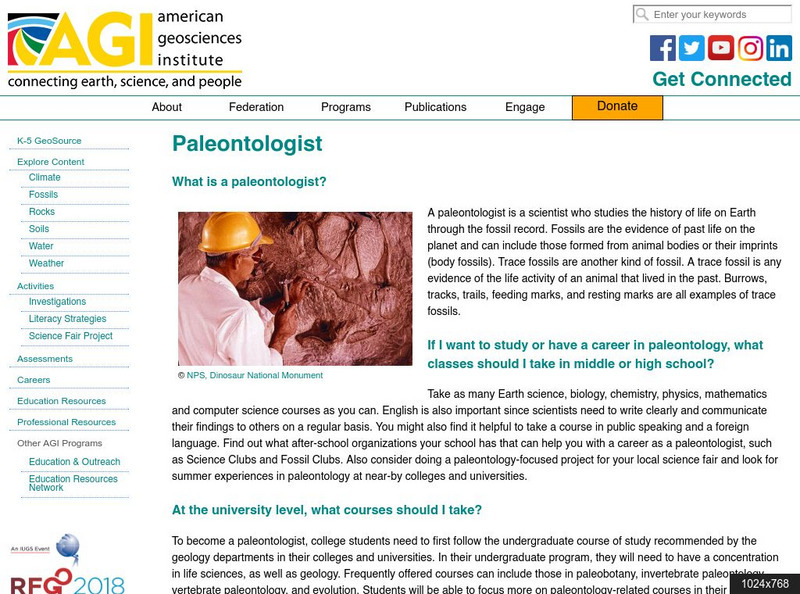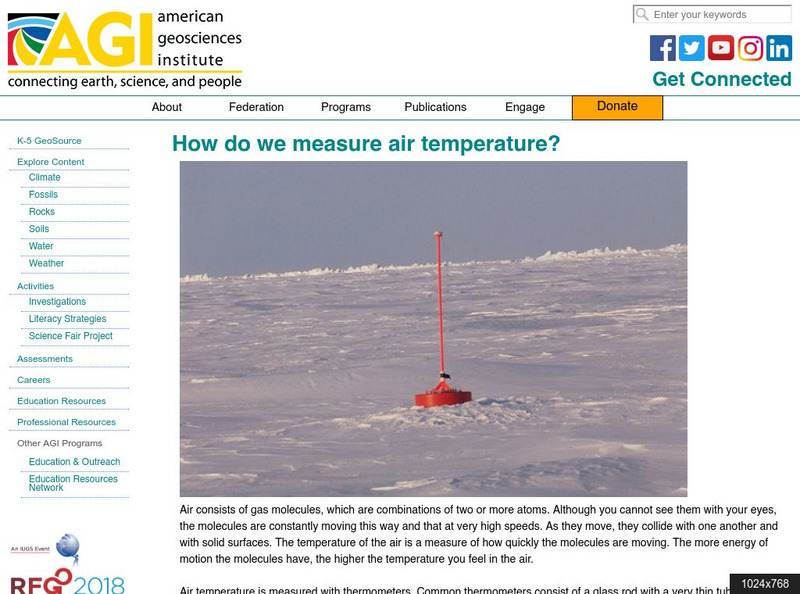American Geosciences Institute
American Geosciences Institute: What Are Pollutants?
Find out about some of the most prevalent pollutants in water, and learn about the effect they have.
American Geosciences Institute
American Geosciences Institute: What Are Harmful Microorganisms?
Find out about microorganisms that exist in various water forms.
American Geosciences Institute
American Geosciences Institute: What Are Natural Solutes?
Find out about naturally occurring substances that also affect water quality.
American Geosciences Institute
American Geosciences Institute: How Is Drinking Water Cleaned?
Get an overview of how water is treated in order to be safe to use and drink.
American Geosciences Institute
American Geosciences Institute: How Can We Measure the Wind?
Find out how scientists measure wind to help understand the weather.
American Geosciences Institute
American Geosciences Institute: What Are Weather Reports?
Find out what a typical weather reports contains, and why it is important to viewers.
American Geosciences Institute
American Geosciences Institute: What Is Atmospheric Pressure?
See how atmospheric pressure affects air masses, which in turn affects the weather on Earth.
American Geosciences Institute
American Geosciences Institute: Weather in High and Low Pressure Areas
Find out why weather in high pressure areas is fair, and weather in low pressure areas is cloudy and stormy.
American Geosciences Institute
American Geosciences Institute: The Weather at High Altitudes
Learn about the air and weather that happens high up in the atmosphere.
American Geosciences Institute
American Geosciences Institute: Radar and Satellites Observe Predict Weather
Find out how radar and satellites have become an important tool for observing and predicting the weather.
American Geosciences Institute
American Geosciences Institute: What Is the Water Cycle?
See Earth's water cycle as a closed system, where all the water is cycled through the atmosphere.
American Geosciences Institute
American Geosciences Institute: Evaporation and Condensation
A concise explanation of the difference between evaporation and condensation.
American Geosciences Institute
American Geosciences Institute: Careers: Geologist
Learn about the work of a geologist, and find out what it takes to work in the field of geology.
American Geosciences Institute
American Geosciences Institute: Careers: Paleontologist
Learn about the work of a paleontologist, and find out what it takes to work in the field of paleontology.
American Geosciences Institute
American Geosciences Institute: How Do We Measure Air Temperature?
Find out how scientists measure the air temperature to accurately report the weather.
American Geosciences Institute
American Geosciences Institute: Earth Science Week: Looking for Wild Elements
Learners will explore local places with wild elements, such as wildlife refuges. Students also will create maps showing spatial relationships between wild places and school, and they will find creative ways to record experiences.
American Geosciences Institute
American Geosciences Institute: Earth Science Week: Modeling Earthquake Waves
Students model earthquake waves with a slinky toy.


